Stop Buying These 10 Unnecessary Groceries To Save Over $5,000 This Year

With the cost of everything increasing due to stubborn inflation figures, finding cheaper alternatives for necessities like groceries is more important than ever. This is why we will look at groceries that can be skipped or replaced with something less expensive to save you some money on your grocery bill.
Check Out: 6 Best Expensive-Looking Things You Can Buy at Big Lots
Read More: 5 Unusual Ways To Make Extra Money (That Actually Work)
What unnecessary groceries can you stop buying to save over $5,000 this year?
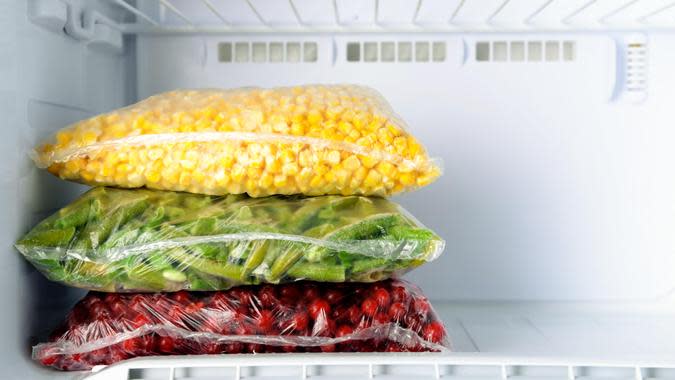
Packaged Fruits and Veggies
“Instead of buying expensive pre-cut fruits and veggies, save around $15 a month by purchasing whole produce and doing the slicing yourself,” said Milad Bahrami.
Even though it’s tempting to pay for convenience, you can save up to $180 per year if you make this grocery store swap. You may find better deals on fruits if you visit the local market in season.
For You: 5 Costco Deals From Superfans That You Can Get Only in May
Trending Now: 4 Genius Things All Wealthy People Do With Their Money
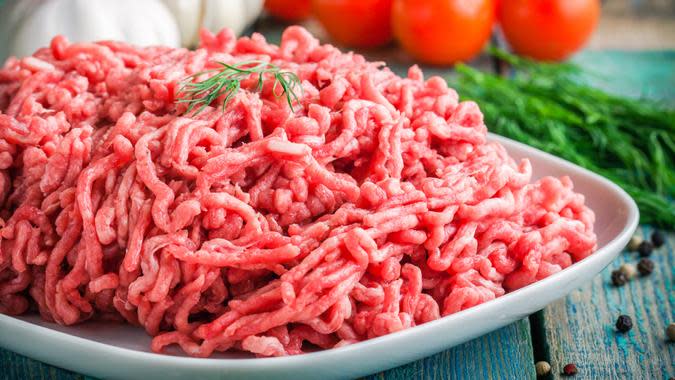
Ground Beef
“Canned beans are a cheap and healthy protein alternative that you can use in chili or bean burritos once a week rather than ground beef to save $15 monthly,” stated Bahrami.
You don’t always have to spend the money on ground beef because cheaper alternatives for protein are available. You can save another $180 or so by relying on this alternative.
Find Out: Thinking of Buying a Tesla? Here are 4 Reasons You Might Regret It
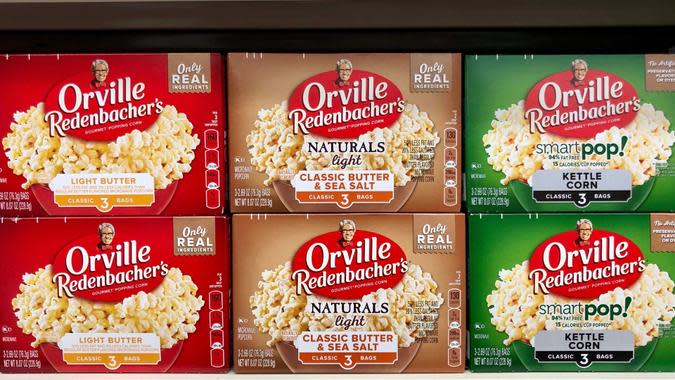
Popcorn
“Pop your own popcorn in coconut oil for a budget-friendly snack that costs a fraction of pre-packaged chips, saving you $20 each month,” shared Bahrami. This simple swap could save you around $240 annually.
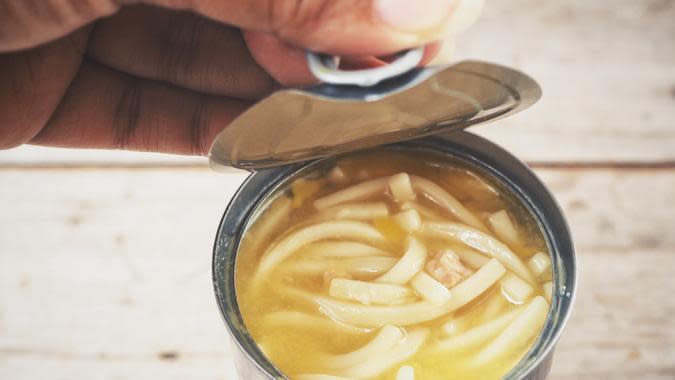
Prepared Meals
“Meal-prepping larger batches of homemade casseroles, soups, and stews on weekends provides quick, nutritious lunches and dinners throughout the week for far less than frozen, packaged meals,” shared Bahrami. “With a few effortless substitutions like these, you can pocket $200 or more in monthly grocery savings.”
Those prepared meals may be convenient, but they come with a price that could impact your grocery budget.

Bottled Water
“Instead of splurging on bottled water, invest in a reusable water bottle and a home water filtration system,” said Erika Kullberg, an attorney, personal finance expert and founder of Erika.com. “Bottled water can cost upward of $1 per bottle, while tap water costs a fraction of that amount.” You could save hundreds annually by eliminating bottled water purchases and helping the environment.”
Read More: The Single Best Thing To Buy at Costco When You’re on an Extra Tight Budget
Bahrami said, “Quench your family’s thirst with tap water filtered through a pitcher instead of pricy bottled water, putting $20 back in your wallet each month.” Saving around $240 per year without missing out on hydration is a decent amount of savings.
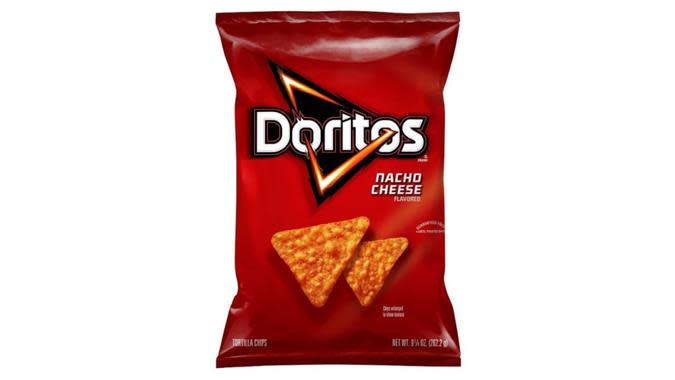
Pre-Packaged Snacks
“Another thing to avoid is the convenience trap of prepackaged snacks like chips, cookies and granola bars,” said Kullberg. “These items are not only expensive but often packed with unhealthy additives.”
“Overbuying snacks is expensive and leads to waste, especially when buying bulk bags of chips and other foods that can go stale if you don’t consume them quickly,” said Andrea Woroch, a money savings expert. “Not to mention, the more you snack, the less you may eat of your healthy meals, so try to cut back on these unnecessary foods to save you money.”
When you’re in a rush, you may be tempted to purchase one of those convenient snack packs, but these could cost you hundreds of dollars annually.
What if you want something to snack on?
“Instead, you should opt for homemade snacks like air-popped popcorn, fresh fruit or homemade trail mix. Not only are these options healthier, but they’re also more cost-effective and these changes can save another couple hundred dollars a year,” said Kullberg.

Coffee
“Brew your coffee at home, invest in a quality coffee maker or French press, and try experimenting with different flavors and add-ins to create your custom coffee creations,” said Kullberg.
The reality is that coffee shop visits and individual coffee pods can be costly. It’s tempting to purchase a coffee on your way to do groceries or at the grocery store.
Kullberg estimates you can save $1,000 annually by adjusting your caffeine spending.
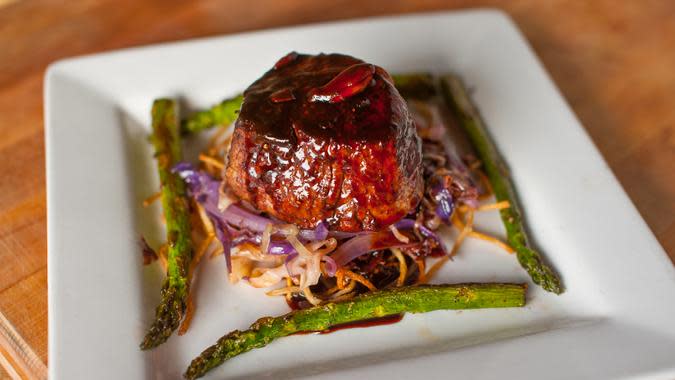
Gourmet Cooking Ingredients
“While it can certainly be a cost-effective alternative to constantly dining out, cooking at home can also be pricey if you continually opt for gourmet ingredients,” said Kullberg. “While gourmet ingredients may add flair to your meals, they also come with premium price tags. Items like truffle oil, specialty cheeses and exotic spices can quickly inflate your grocery bill.”
Learn More: 5 Reasons You Should Always Buy Electronics at Costco
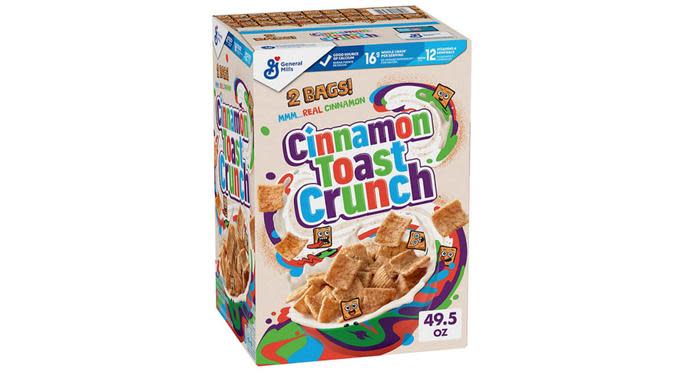
Brand-Name Products
“Avoid the premium cost of brand-name products,” said Kullberg. “Generic or store-brand products often offer similar quality at a fraction of the cost compared to their brand name counterparts.”
“Many brand name cereals are made by the same manufacturers as the store brand versions and cost up to 40% less. Look at the ingredients list to compare your favorite brand names with a store brand option and give it a taste test,” said Woroch.
How much can you save?
Kullberg estimates: “You’ll enjoy significant savings without sacrificing quality, which can help you save $1,500 or more annually.”

Baked Goods
“When buying baked goods, check for yesterday’s leftovers to save 50% off,” said Woroch. “This can be a loaf of bread, a bag of bagels, a package of muffins that are still great for taste but deep discounts.”
You can cut your baked goods budget in half by making this swap at the grocery store.

What Are the Total Savings?
“Remember, small changes can really add up over time,” said Kullberg. “Saving less than $100 a week on groceries results in annual savings of $5,000.”
The savings will depend on the size of your family and how much you consume. If you combine the items listed in this article, you can save around $5,000 annually.
“Making that simple switch to a reusable water bottle, buying generic products, and brewing your own coffee are small sacrifices that will see your wallet balloon with savings,” said Kullberg.
While food prices have risen, it doesn’t mean we have to accept a higher grocery bill. There are numerous swaps that you can make to save money here.
More From GOBankingRates
This article originally appeared on GOBankingRates.com: Stop Buying These 10 Unnecessary Groceries To Save Over $5,000 This Year
